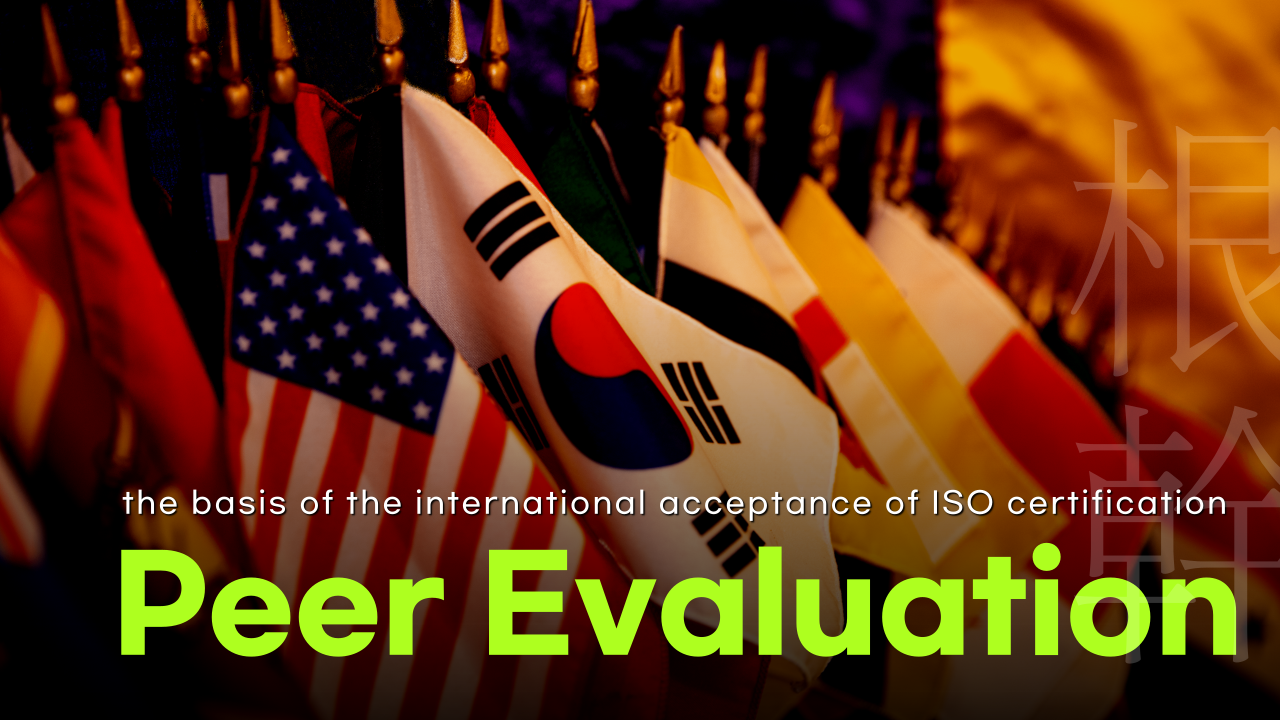News
- Date :2023-10-12
- Writer :admin
- Count :644

On the 30th of September, an official email was sent from APAC (Asia Pacific Accreditation Cooperation) announcing the promotion of KAB’s member Jongil Park to APAC Lead Evaluator status, marking the second Lead Evaluator promotion from KAB.
This is the 46th Lead Evaluator promotion out of 142 APAC Peer Evaluators, and the second in Korea following KAB’s member Youngjae Park.
It is a very professional and honorable role, with only 46 around the world and just two in Korea.
What exactly is an APAC Lead Evaluator of which qualification is given to such a small number of professionals?
First, we must look into what Peer Evaluation is.

In the globalized market, ISO certification is the most efficient and reliable means of confirming a company’s high management level.
To meet this traditional and global demand for certification, a large number of certification bodies exist around the world. Likewise, accreditation bodies work globally to verify and accredit whether these conformity assessment bodies have the internationally required competence.
If a company attempting to enter a specific economy was required to obtain ISO certification from the economy’s local accreditation body, it would have to go through an inefficient process of having to undergo similar conformity assessments repeatedly.
At the same time, it would be difficult to directly check whether the ISO certification held by this company was obtained through the appropriate procedures and whether the certification body that issued such certification is competent.
To resolve these trade barriers and achieve international acceptance of ISO certification, accreditation organizations are recognized under Multilateral Recognition Arrangements (MRA/MLA).
Of course, such recognition cannot be achieved with a simple handshake.
This is where peer evaluation comes in.
APAC’s document containing the mutual recognition process explains peer evaluation as follows:
Peer evaluation: a structured process of evaluation of an accreditation body against the specified requirements by representatives of other accreditation bodies (APAC MRA-001 Procedures for Establishing and Maintaining Mutual Recognition Ver 1.19). |
In other words, peer evaluation is a structured procedure in which compliance with specified requirements is evaluated by an evaluation team composed of representatives from several other accreditation bodies.
It is a process that confirms that each accreditation has the same level of confidence and ultimately forms the basis of the international acceptance of ISO certification.
Accordingly, peer evaluators are representatives of other accreditation bodies whose role is the evaluate other accreditation bodies.
APAC has four grades of peer evaluators:
1. Lead Evaluator 2. Evaluator 3. Provisional Evaluator 4. Nominee Evaluator |
Becoming a Lead Evaluator from a Nominee Evaluator requires completing APAC evaluator training courses, performance reviews, and more. Those who have successfully undergone the course perform a variety of roles including the ones listed below:
- lead the evaluation in an efficient and effective way - evaluate whether an accreditation body complies with the requirements - organize an evaluation team with an appropriate composition - decide from the submitted documentation any areas requiring special examination - report the findings of all Team Members - determine the criticality and classification of findings - evaluate whether the corrective actions are undertaken - adapt quickly and easily to different accreditation cultures |
KAB expects this promotion to APAC Lead Evaluator to serve as an opportunity to further solidify its position in the global accreditation and certification industry.
We, KAB, will continue to strive to expand confidence not only in Korea but also around the world.






